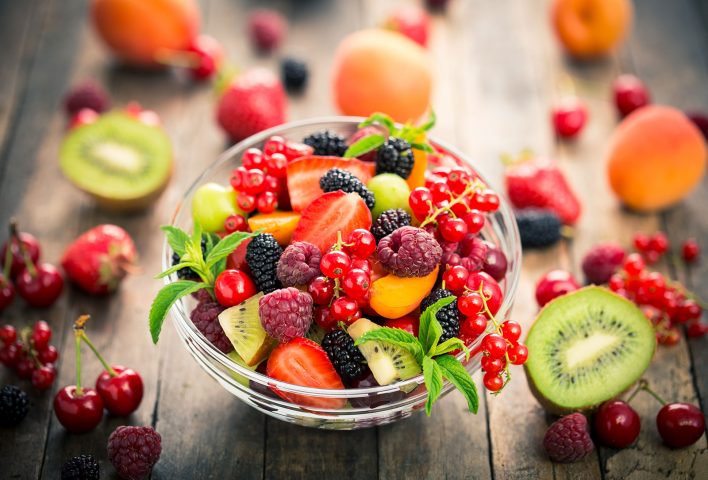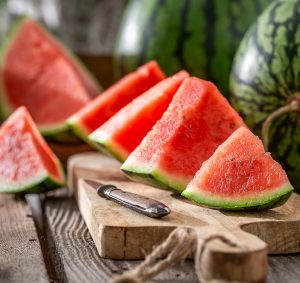The Best Fruits for a Dementia-Friendly Diet

February 2025 Newsletter
March 5, 2025
The Benefits of Whole Grains for Dementia Patients
April 2, 2025The Best Fruits for a Dementia-Friendly Diet

Dementia is a progressive neurological disorder that affects memory, cognitive skills, and behaviour. Consuming a diet rich in nutrients, antioxidants, and anti-inflammatory agents can play a key role in maintaining brain health. Fruits, in particular, offer essential vitamins, minerals, and plant-based compounds that may help slow cognitive decline and improve brain function. Below is an in-depth overview of the most beneficial fruits for individuals with dementia.
- Berries: The Superfoods for Brain Health
Berries are rich in flavonoids and antioxidants that protect brain cells from oxidative stress and inflammation, both of which contribute to dementia.
- Blueberries: Packed with anthocyanins, blueberries help improve memory and cognitive function by enhancing brain cell communication and reducing inflammation.
- Strawberries: Contain high levels of vitamin C and flavonoids that can slow cognitive decline.
- Blackberries & Raspberries: Loaded with polyphenols, these berries support neuroprotection and help in preventing age-related memory loss.
- Apples: Nature’s Brain Booster
Apples contain quercetin, an antioxidant known for its neuroprotective effects. They help reduce inflammation in the brain, combat oxidative stress, and support cognitive function. Eating apples with their skin maximizes their health benefits.
-
 Oranges & Citrus Fruits: Vitamin C Powerhouses
Oranges & Citrus Fruits: Vitamin C Powerhouses
Vitamin C plays a vital role in reducing the risk of cognitive impairment and dementia. Oranges, lemons, grapefruits, and tangerines are rich in vitamin C, which can help fight free radicals and enhance neurotransmitter function.
- Pomegranates: A Natural Brain Protector
Pomegranates are loaded with antioxidants and polyphenols that protect against oxidative stress and improve blood flow to the brain. Studies suggest that regular consumption of pomegranate juice can enhance memory and cognitive performance.
- Grapes: A Source of Resveratrol
Grapes, especially red and purple varieties, contain resveratrol, a powerful antioxidant that helps reduce inflammation, supports blood circulation, and protects brain cells from damage. This compound has been linked to better memory retention and overall cognitive function.
- Bananas: The Mood-Boosting Fruit
Bananas are an excellent source of potassium, vitamin B6, and magnesium, which help support neurotransmitter function and improve mood. Their natural sugars provide quick energy, and their fiber content ensures steady blood sugar levels, reducing the risk of mental fatigue.
- Avocados: The Healthy Fat Fruit
Avocados are rich in monounsaturated fats, which promote healthy blood flow and reduce inflammation. They also contain folate and vitamin K, both essential for cognitive function and preventing blood clots in the brain.
- Kiwi: The Memory Enhancer
Kiwi is high in vitamin C, which can reduce oxidative stress in the brain. It also contains vitamin E, which supports neural health and protects brain cells from damage.
- Pineapple: The Anti-Inflammatory Fruit
Pineapple contains bromelain, an enzyme known for its anti-inflammatory properties. Chronic inflammation has been linked to cognitive decline, and incorporating pineapple into the diet may help counteract this effect.
-
 Watermelon: Hydration for Cognitive Function
Watermelon: Hydration for Cognitive Function
Proper hydration is essential for brain health, and watermelon is an excellent source of water and electrolytes. It also contains lycopene, an antioxidant that supports brain health and reduces inflammation.
Tips for Including These Fruits in a Dementia-Friendly Diet:
- Smoothies: Blend a variety of fruits with yogurt or milk for a nutritious and easy-to-consume drink.
- Fruit Salads: Create a colourful and antioxidant-rich fruit salad with berries, citrus, and apples.
- Juices: Freshly squeezed juices from pomegranates, oranges, and grapes provide a concentrated dose of nutrients.
- Snacks: Sliced apples with peanut butter or banana with nuts make excellent brain-boosting snacks.
Conclusion
Eating plenty of fruit can help keep the brain healthy and may slow down dementia while improving thinking skills. Fruits like berries, citrus fruits, apples, and avocados are full of antioxidants, vitamins, and brain-protecting nutrients, making them great choices for people with dementia. Adding these fruits to daily meals can support overall health and brain function. Along with a balanced diet, staying active and engaging in mental exercises is important for managing dementia effectively.



